Profit and prosper with the best of Kiplinger's advice on investing, taxes, retirement, personal finance and much more. Delivered daily. Enter your email in the box and click Sign Me Up.
You are now subscribed
Your newsletter sign-up was successful
Want to add more newsletters?

Delivered daily
Kiplinger Today
Profit and prosper with the best of Kiplinger's advice on investing, taxes, retirement, personal finance and much more delivered daily. Smart money moves start here.

Sent five days a week
Kiplinger A Step Ahead
Get practical help to make better financial decisions in your everyday life, from spending to savings on top deals.

Delivered daily
Kiplinger Closing Bell
Get today's biggest financial and investing headlines delivered to your inbox every day the U.S. stock market is open.

Sent twice a week
Kiplinger Adviser Intel
Financial pros across the country share best practices and fresh tactics to preserve and grow your wealth.

Delivered weekly
Kiplinger Tax Tips
Trim your federal and state tax bills with practical tax-planning and tax-cutting strategies.

Sent twice a week
Kiplinger Retirement Tips
Your twice-a-week guide to planning and enjoying a financially secure and richly rewarding retirement

Sent bimonthly.
Kiplinger Adviser Angle
Insights for advisers, wealth managers and other financial professionals.

Sent twice a week
Kiplinger Investing Weekly
Your twice-a-week roundup of promising stocks, funds, companies and industries you should consider, ones you should avoid, and why.

Sent weekly for six weeks
Kiplinger Invest for Retirement
Your step-by-step six-part series on how to invest for retirement, from devising a successful strategy to exactly which investments to choose.
When your shopping list is long and time is short, it’s tempting to make a single stop at the warehouse club. Face it: Costco, Sam’s Club and BJ’s stock everything from groceries and cleaning supplies to electronics and clothing — often in bulk quantities and often at good prices. Plus, you feel the need to shake your money’s worth out of the annual membership fee you're paying.
You can make it easier for your warehouse club membership pay for itself by taking advantage of periodic membership deals. For example, you can save on a Costco membership right now.
We’ve written plenty about how warehouse clubs are a great place to stock up on toilet paper, various kitchen pantry staples and even wine. For one, there some things you can get without a membership.
But for those items that are member's only, it's still worth thinking twice before tossing it in your cart. There are three big reasons why.
First, buying certain items in bulk is a waste of money if you won't use the product before it spoils or expires. Next, warehouse clubs only carry certain brands so you may be missing out on savings on products where you're not picky about brands.
Lastly, you’re missing out on the money-saving power of weekly sales and coupons — Costco and Sam’s Club don’t accept manufacturer coupons. While BJ’s does, there are certain restrictions that make it harder to maximize savings.
“It's understandable that a lot of people are in a state of mind of stocking up after the past couple years — but don’t let that lead to wasted money and wasted product,” says Kristin McGrath, an editor and shopping expert at Offers.com. “Having stuffed cupboards can also make it difficult to verify what you have, meaning you're likely to accidentally double-buy something and end up wasting more money.”
Here’s a look at 22 common items stocked by warehouse clubs that you might want to pick up somewhere else.

The right credit card can help you save at the grocery store. See Kiplinger’s top credit card picks for groceries and food, powered by Bankrate. Advertising disclosure.

1. Name-brand cereal
Yes, you can find name-brand cereals at warehouse clubs. However, budget-conscious shoppers know they can grab the breakfast staple for less elsewhere. Top U.S. cereal makers Kellogg’s, General Mills and other cereal manufacturers regularly pass along discounts to grocers who pass them off to customers.
The major manufacturers also make available coupons that can be used at your local grocery store or big-box retailer — but not at Costco, Sam's Club or BJ’s — says Cindy Livesey, founder of LivingRichWithCoupons.com. The warehouse clubs don't take manufacturer coupons.
Not into clipping coupons? Find them instead on the manufacturer’s website or Facebook page. Also, you can stack these coupons with any sale your local retailer is promoting.
“This allows you to get a better deal at the grocery store than what you'd find at a warehouse club,” Livesey says.
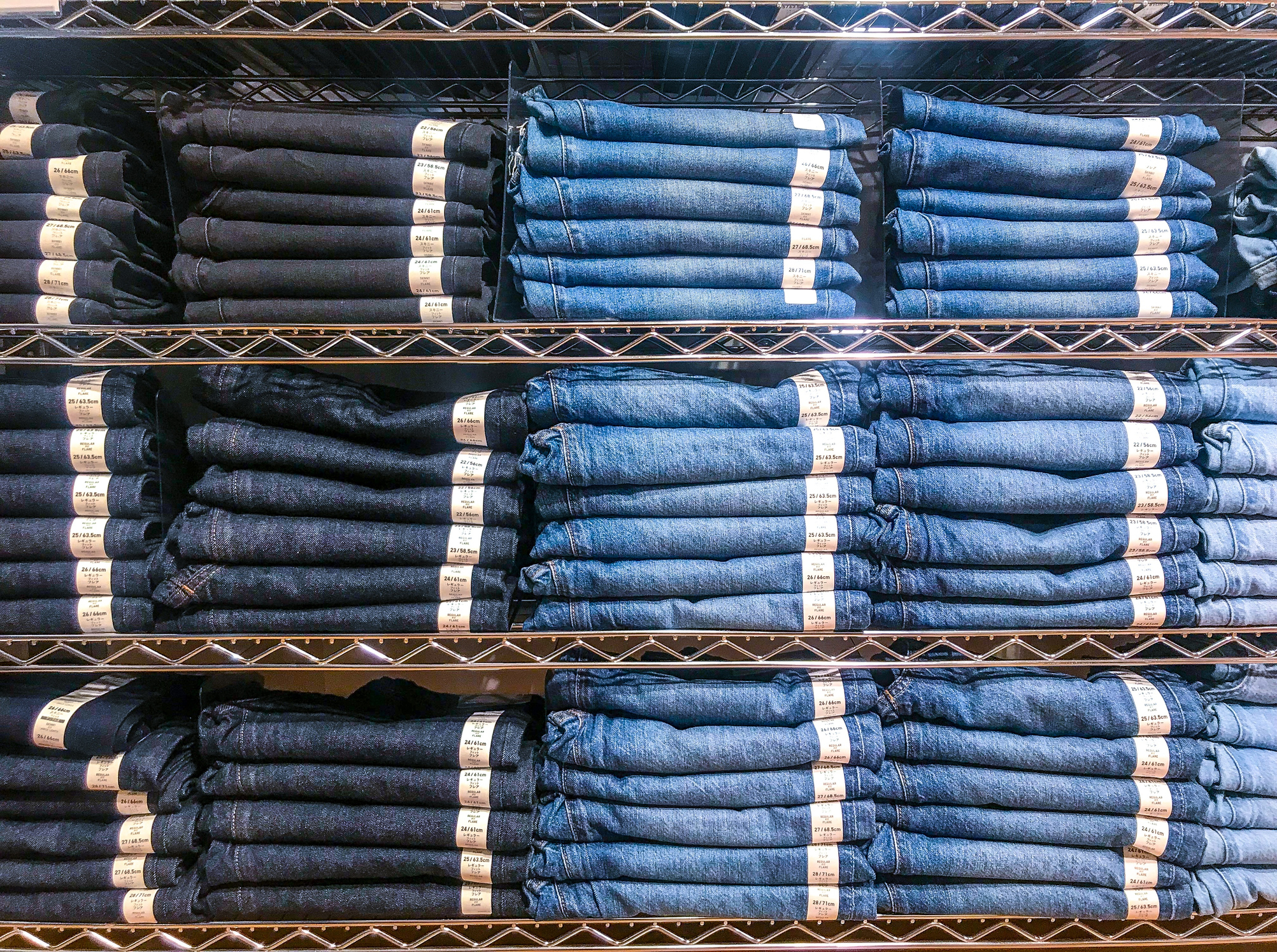
2. Designer clothing
Don’t be fooled by the discounted prices you might see on designer clothing items (think: Nicole Miller, DKNY or Calvin Klein) at Costco, Sam’s Club or BJ's.
“If you’re after actual designer apparel, know that the items sold in bulk stores are often more-cheaply-made versions of what's sold in high-end stores,” says McGrath of Offers.com. "If the label or look makes you happy, these could still be solid buys. Just be aware you’re not saving hundreds of dollars on an actual designer-quality item.”
The designer clothing and accessories you’ll find at warehouse clubs are typically constructed using lesser-quality materials and are designed specifically for lower-tier retailers, she adds.
If you’re simply on the hunt for a basic T-shirt or pair of jeans and don’t care about labels, warehouse clubs will offer competitive prices, McGrath says. Just remember that you aren’t getting the same pair of designer jeans that you’d find at Neiman Marcus or Nordstrom.

3. Beauty products, soaps, shampoo and skincare
Remember, warehouse clubs sell a limited roster of brands. "While you might be saving money by buying in bulk versus what you’d pay for that same brand at a non-warehouse store, you might also get pushed to buying a more expensive brand because that’s what the warehouse club has available," says McGrath.
If you wouldn't buy that brand normally, you'd be better off buying lower-priced brands at big-box stores, she adds.
Also, be cautious when purchasing skincare products containing sunblock from a warehouse club, warns smart shopping expert Trae Bodge of TrueTrae.com. SPF degrades over time, and Costco, Sam’s Club and BJ’s usually sell these types of items packaged in sets of two large containers. Before buying, check the expiration date and decide whether you’ll use the product often enough to finish the bulk supply before it expires.
Skincare products containing SPF have a shelf life of up to three years if stored properly, according to Mayo Clinic. So unless you frequently use these types of skincare products or are sharing them with someone else (say, your spouse or kids), you may want to steer clear of buying them in bulk, Bodge says.
You’re better off purchasing a smaller bottle that you know you'll finish before it expires. Pick these smaller bottles up from your local drugstore, where you can take advantage of weekly sales, coupons and loyalty discounts.

4. Spices
Ground spices have a shelf life of two to three years for peak freshness and flavor, according to manufacturer McCormick. If you’re buying standard-size spice bottles (which usually range from 0.6 ounces to three ounces at a traditional grocery store or big-box retailer), finishing them within that timeframe is realistic.
However, when you buy spices in bulk at warehouse clubs, in sizes ranging from six-ounce bottles to five-pound containers, it can take much longer to finish them off – especially if it’s a spice you don’t use often, says TrueTrae.com’s Bodge.
Spices don’t necessarily “go bad” over time, she explains. Instead, the aroma and flavor intensity gradually degrades over time. So that cinnamon apple pie you make that everyone looks forward to at the family reunion may not be as flavorful if the ground cinnamon in it is several years old.
Unless you regularly cook with certain spices (say, curry, cayenne or chili powder), Bodge recommends buying them from your local grocer in smaller sizes so you don't end up wasting money or disappointing diners.
Says McGrath, “Even if you frequently cook in bulk, you’re likely not saving much by purchasing copious amounts of bulk spices.” Looking for bargains on said spices? Grocery deep discounter Aldi has a fine line of organic spices that are a steal at everyday low prices.
For peak flavor, buy whole spices, like cinnamon sticks or whole peppercorns, and grind them as needed. When stored properly, whole spices can maintain their flavor and aroma for up to four years.

5. Diapers
For families with young children, shopping at a warehouse club can offer huge savings. But defaulting to Costco, Sam's Club or BJ’s without doing your due diligence could cost you — and this is especially true when it comes to diapers and baby supplies.
We looked at prices for store-brand diapers. Here's what we found.
At Costco, a 192-count package of Kirkland Signature size 1 diapers costs $34.99 (18 cents per diaper). By comparison, at Walmart, you can get a 162-count box of size 1 Parent’s Choice diapers for $17.48 (10.8 cents). Based on unit price, Walmart offers a better deal.
When looking for deals on other baby supplies, such as wipes and diaper ointment, consumers can score big using Amazon's Subscribe and Save program, Offers.com’s McGrath says. The program allows parents to set up auto-delivery on everything from lotion to hair-care products. Amazon Prime members qualify for 20% off diapers and other related products when ordering at least five items per month, she notes.
“You can even skip a delivery if necessary or you need to change diaper sizes. You’re not committed to the size of a giant box of diapers you purchased in bulk a month ago at a warehouse club,” McGrath adds.

6. Baby formula
Perhaps you’re a new parent or a grandparent who wants to help out. So you think, “diapers? (No!) “How about baby formula?” (No, again). Not from Costco, Sam's Club or BJ's anyway.
“Unless you have multiples, buying too much formula at once can be a mistake,” says Bodge. “Your instinct may be to stock up, but remember that soon enough, your little one will start eating solid foods and eventually wean off the formula. You can give it away or donate it, of course, but be mindful of the use-by date.”
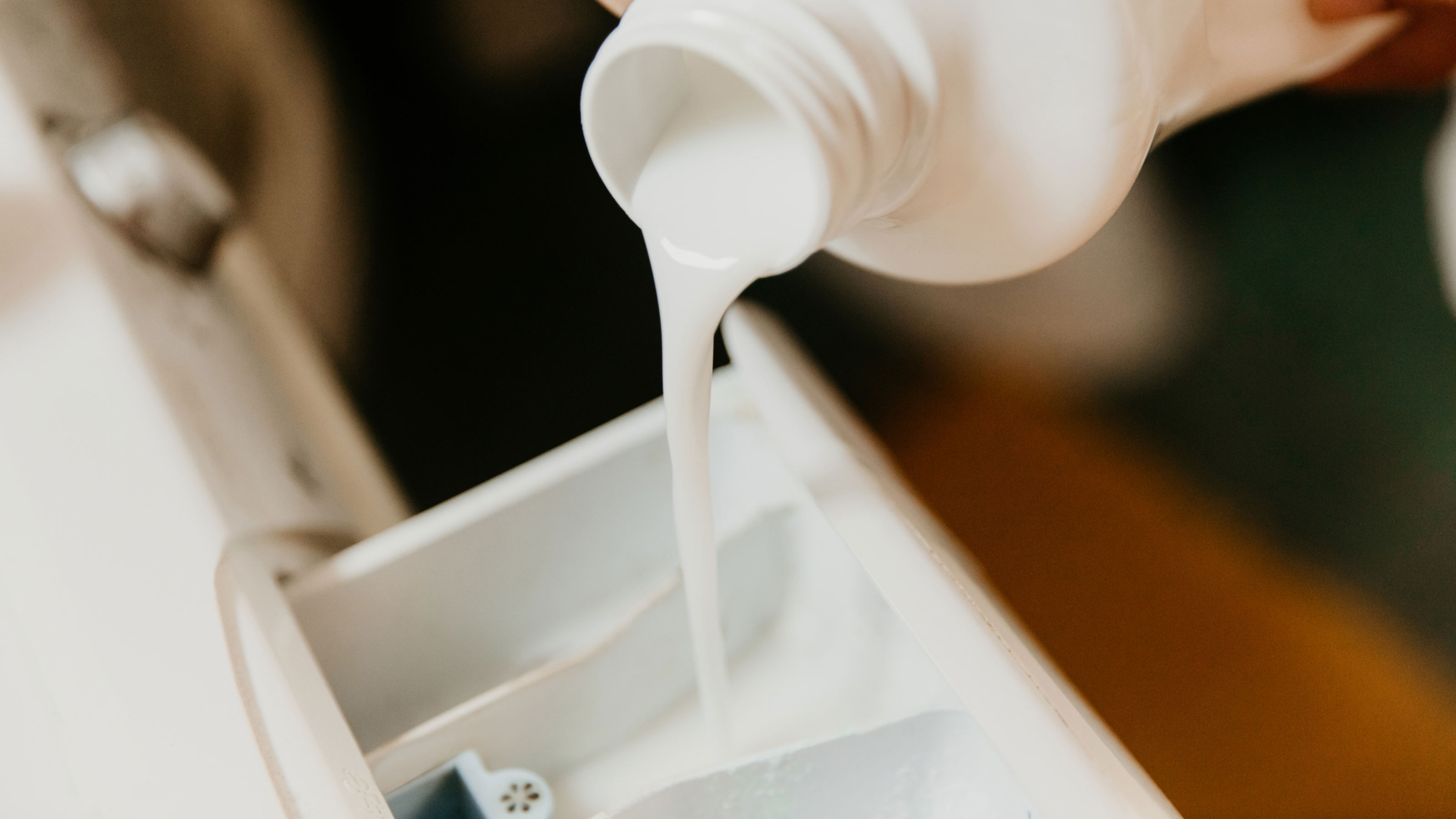
7. Liquid cleaners
Liquid cleaning products tend to lose their efficacy over time. Huge bottles of liquid dish soap or laundry detergent may not be a smart money-saving strategy — especially if you end up having to use twice the amount of product to get the desired result with a single wash.
“Unless you do a lot of laundry [or wash dishes by hand] very regularly, it is best to buy liquid detergents in smaller quantities,” TrueTrae.com’s Bodge says.
If you prefer to shop exclusively at warehouse clubs rather than making multiple trips to several stores, consider buying powder-based cleaning products instead, Bodge recommends. When stored properly in a cool and dry place, they have an unlimited shelf life.
Adds consumer savings expert Andrea Woroch, “Studies show that dollar store cleaners work just as effectively as name brands so you can save yourself even more by picking up your various bathroom and counter spray cleaners there. Otherwise, you may be able to find better discounts at your local big box store when the brand name is on sale and also stacking a manufacturer coupon or store coupon.”

8. Seldom-used household products
Before stocking up at warehouse clubs on household products you only need infrequently, consider the size of your home, Offers.com’s McGrath suggests. Buying carpet/upholstery cleaner, plumbing clog remover, air fresheners and other seldom-used products, either in multi-packs or in large containers, will just take up valuable storage space underneath your kitchen or bathroom sinks, she adds.
You might even forget you stored them there and end up not using them at all. For everyday shoppers, big-box retailers are the better option for purchasing these types of household products in smaller quantities, McGrath advises.

9. Over-the-counter medicine
If you’ve ever suffered from an unexpected headache only to discover that you're out of ibuprofen (Advil) or acetaminophen (Tylenol), stocking up on a bulk-size bottle of pills during your next warehouse club trip may seem like a smart precaution.
But keep in mind that unless you have a medical reason to use such products daily or have multiple people in your home using them, you might not get through that entire 750-count bottle of pills before they expire, warns consumer savings expert Andrea Woroch.
Pain meds can lose potency over time. This can make them less effective per the recommended dosage. Advil recommends consumers stop using any expired bottles of their products for just that reason.
“To save money, purchase the generic version from your local big box store or drugstore in smaller containers,” says Woroch.

10. Dips and spreads
Like to keep your pantry stocked with snacks for binge-watching a new streaming series or powering through all nine seasons of “The Office” again? Then you may be enticed to buy that huge tub of hummus or Buffalo wing dip at your warehouse club of choice.
Yes, you get more for the money. However, will you be able to eat that entire 40-ounce container of hummus by the time you’re done catching up on “Yellowjackets” in just two days? Let's hope not.
Unless you’re buying food for a party or have a large family, you should only buy refrigerated hummus, cheese dip and salsa in smaller quantities, consumer savings expert Woroch recommends. These perishable food items go bad after a specified amount of time once opened.
Remember, the expiration or use-by date on these foods refer to its unopened shelf life. Once you break that seal, you usually need to finish off the container within a few days. For example, the packaging on Sabra brand hummus containers includes a disclaimer that states it should be consumed within seven days after opening.
On a unit-price basis, you might end up spending more at a traditional grocery store, but you're more likely to finish the smaller container. If you’re dead set on scoring a deal, pay attention to weekly sale ads at places such as Target or Walmart, which regularly offer discounts on chip dips and spreads, Woroch notes.
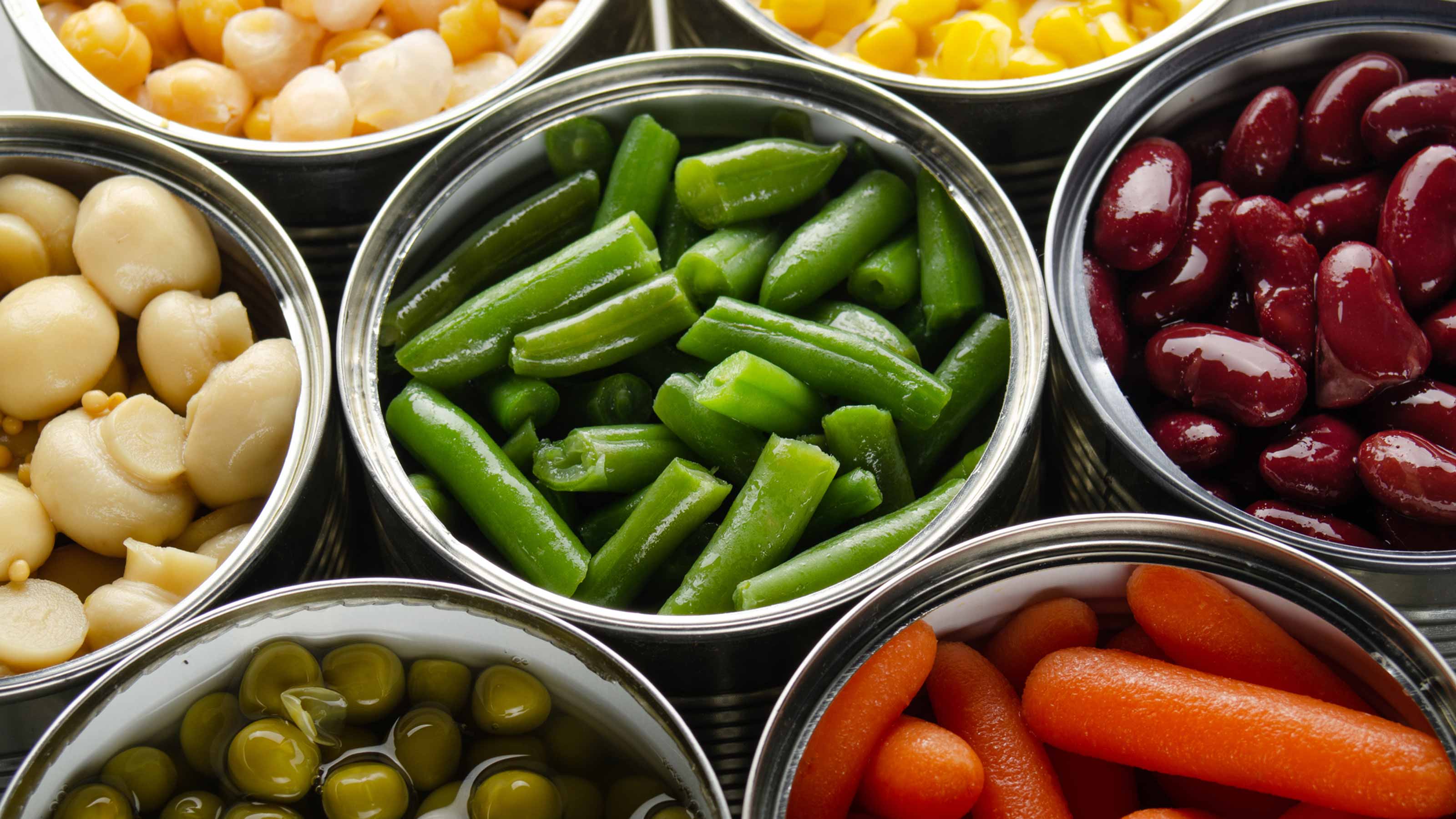
11. Canned goods
If the apocalypse ever happens, those six-pound cans of beans you’ve got stashed in your kitchen pantry may come in handy. Otherwise, you’re better off buying regular-sized canned goods from your local grocery store that you’ll actually finish, suggests LivingRichWithCoupons.com’s Livesey.
According to the Canned Food Alliance, canned goods can last up to two years after the date of purchase, so shoppers should stock up in moderation. It's also a good idea to periodically go through your pantry and pull out any close-to-expiring cans so you can be sure to use them before they go bad.
Some grocers even offer exclusive deals on canned items at various times of the year when prices are slashed, Livesey says. She notes that ShopRite grocery stores (located in Connecticut, Delaware, Maryland, New Jersey, New York and Pennsylvania) offer a two-week-long sale known as the “Can, Can Sale” twice a year. It includes deep discounts on canned goods and other kitchen and household items.
Kroger, a national grocery chain, also hosts “Mega Event” sales that require shoppers to buy a certain amount of select items (including canned goods) in order to get $1 off each item.
So here’s where using coupons and stacking them with discounts at supermarket chains when they have sales is a money-winning method compared to warehouse shopping.
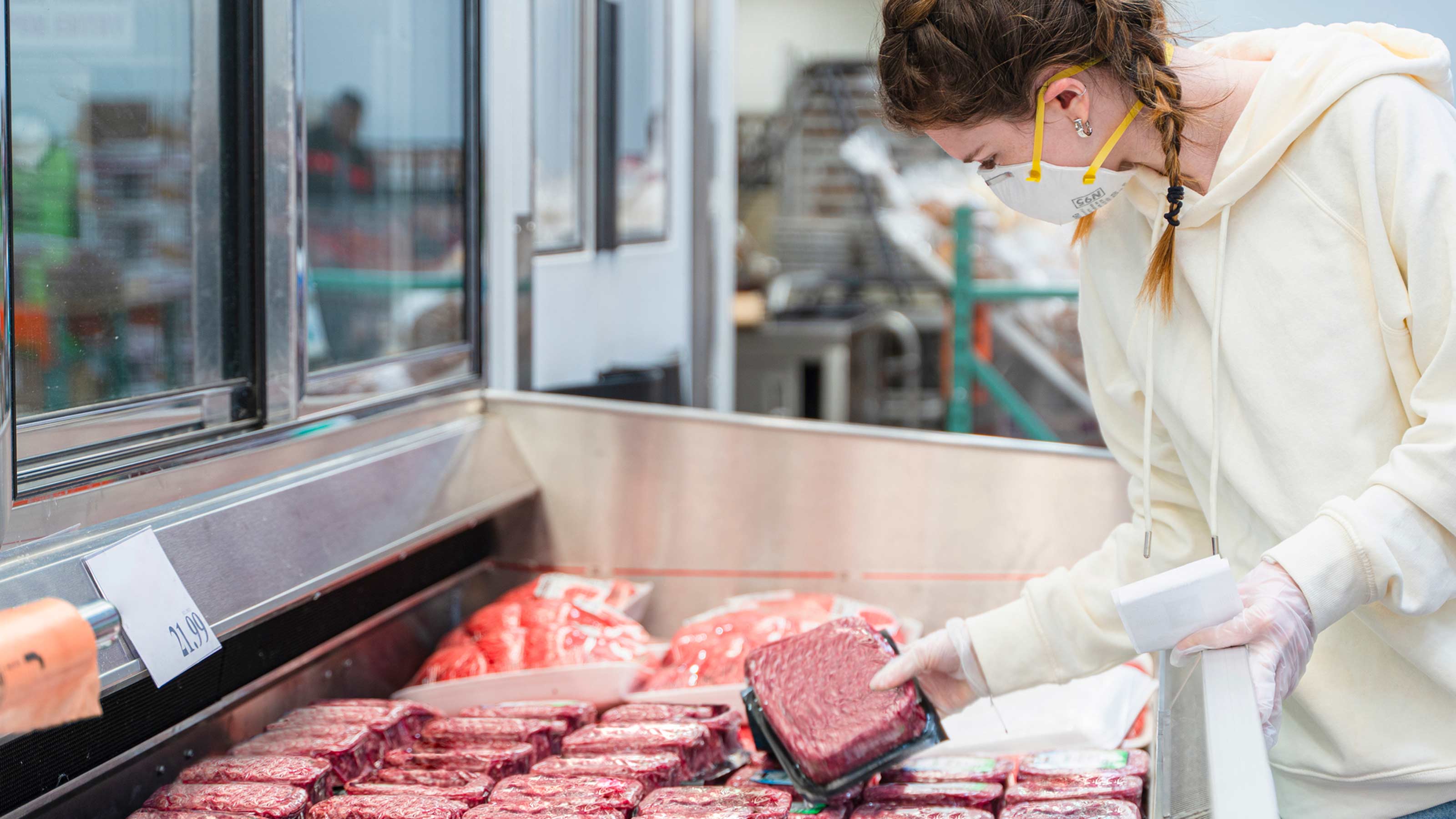
12. Meats
If you're planning to stock up on chicken, beef or seafood during your next warehouse club visit only to stash it in the freezer when you get home (with no immediate plans to use it), reconsider.
Unless you're prepping for a large family gathering or have a house full of kids, there's a good chance you might forget it's even there. By the time you do remember, that four-pound bag of tilapia may be covered in freezer burn.
There's nothing wrong with stocking up on meats you cook regularly — especially if you like to meal prep. But for lesser used meats, opt for smaller quantities at your local grocers. You'll be less likely to overbuy.
When you do buy meats in bulk, don't stick the bulk package straight in the freezer. Instead, separate it into smaller portions. That way, you can defrost just what you need for your next meal, without exposing the whole package to frequent temperature fluctuations.
Also, be sure to keep an eye out for weekly sales at your favorite grocery chain or coupons in the Sunday paper.
For example, in central Virginia, we regularly see buy-one-get-one-free deals on packages of sausages, bone-in chicken breasts, pork tenderloins and spare ribs at the regional chain groceries. If you're lucky enough to have a dedicated, independently-owned butcher shop, your deals may be even greater.
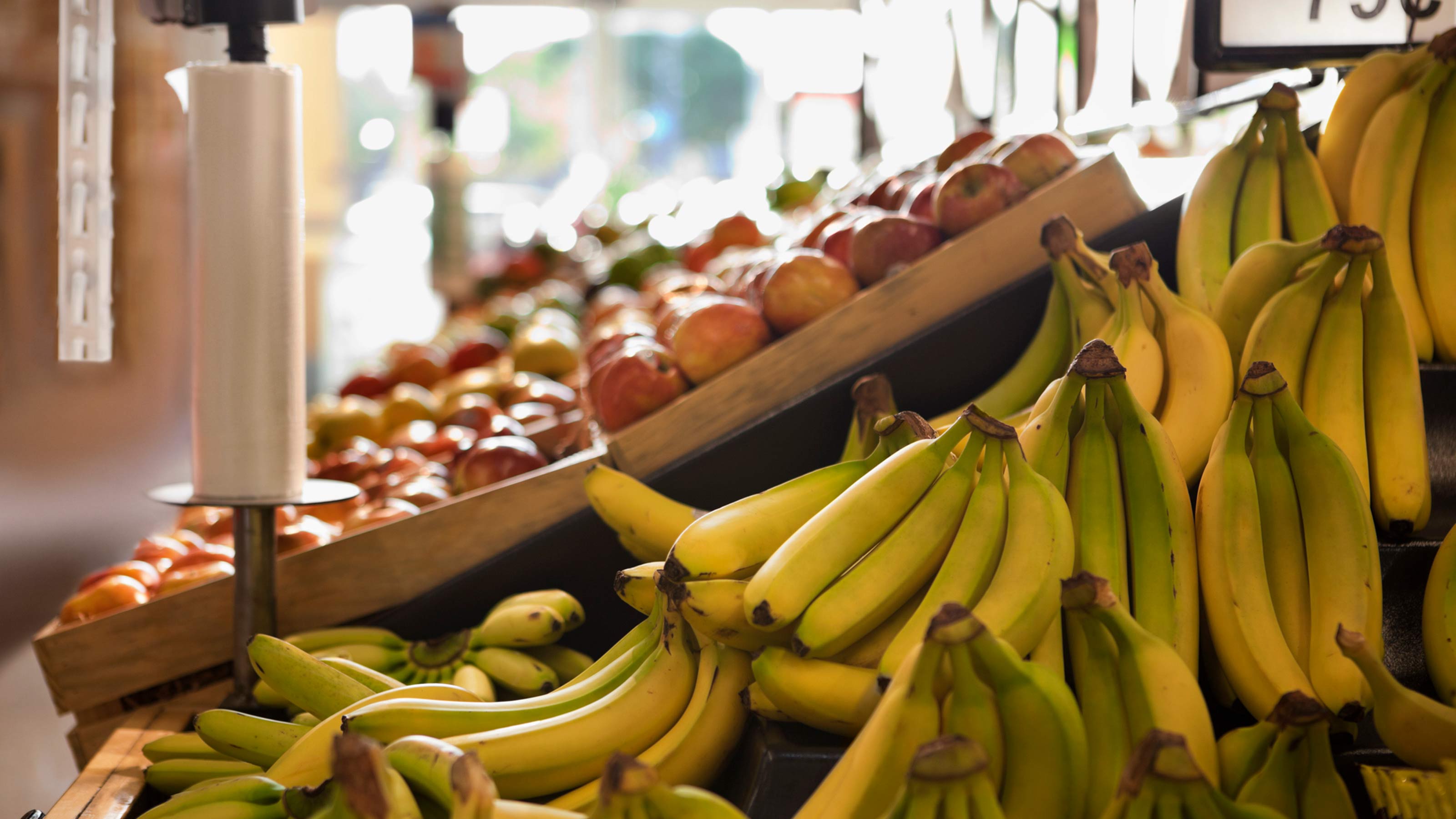
13. Fresh produce
Fresh fruits and vegetables can be expensive — especially if you're buying organic versions from specialty supermarkets. Local farmers' markets wind down as the colder weather rolls in and the recent tariffs are making some products more expensive.
But before you plunk down your hard-earned cash on big boxes of fruits and veggies, ask yourself some questions first, says TrueTrae.com’s Bodge. How many people in your household will eat those items? Will they be able to finish them all before the produce starts to go bad?
If you answered no to the latter question, your money is better spent buying the smaller package that you'll actually finish.
Notes Woroch, "Unless you’re preparing for a large gathering or party, buying fresh produce in bulk can be a risky move since these foods have a short shelf life and may spoil before you eat them. Be especially careful when buying fruits and vegetables that spoil faster than others such as berries, bananas and avocados."

14. Giant packages of snack foods
As you walk the aisle of your favorite warehouse clubs, those huge packages of pretzels, cheese curls or organic tortilla chips might tempt you. But be cautious, experts advise.
"These snacks are typically a good deal, especially if you have several people eating them at home or if you’re planning a party, but if it’s just you and your partner/roommate at home, they can either lead to overindulging or go stale before you have a chance to finish the container," says TrueTrae's Bodge.
Remember, snack food companies typically discount food items for supermarket chains, especially around holidays. Said supermarket chains pass the deals on to you. There are also coupons, which often become plentiful seasonally. But warehouse clubs mostly shun coupons.

15. Toothpaste
Stocking up on toothpaste can be a money-smart move no matter if you're single or have a family. That's because it has a longer shelf life than other personal care items. Toothpaste containing fluoride can last up to two years, according to Colgate.com. If you often find yourself running out at the worst times, buying toothpaste in bulk at your favorite warehouse club may seem like a no-brainer.
But you'll want to comparison shop before throwing that multi-pack into your cart the next time you're at Costco. You'll likely find better deals at your local drugstore or big-box retailer, especially if you shop weekly sales, stack coupons or remember the old retail trick of looking at the lowest shelves, where the cheaper brands live.
Keep in mind you'll need to be flexible on the brand and can expect variations in product size versus what's available at a warehouse club.

16. Dietary supplements
Vitamins, herbal supplements and the like can be pricey, especially if purchased at a pharmacy or specialty store. If you're only concerned about price, then, yes, most warehouse clubs will offer better deals on bulk-size quantities.
However, there's another factor to consider before you buy, suggests TrueTrae.com’s Bodge. "Unless more than one family member is sharing the vitamins with you, they may expire before you finish the bottle," she says.
While vitamins don't necessarily "go bad" after their expiration date, they can lose their potency, according to Healthline.com. (Chewable vitamin tablets and vitamin gummies degrade faster.)
So if you're taking a dietary supplement to manage a nutrient deficiency, taking expired pills may not be as effective.
To help ensure you get your money's worth, Bodge recommends checking the expiration date, then calculating how long it will take to finish that bulk-size bottle or two. If it's after the expiration date, you may want to buy those supplements in smaller quantities elsewhere. Doing this math helps avoid having to toss out half-empty bulk-size bottles of vitamins, which amounts to money wasted.

17. Razors
When it comes to personal care items, it can pay to comparison shop before committing to a bulk-size package of a desired item. While warehouse clubs are known for their deep discounts, you might still score better deals on the same brand-name products known for quality at other retailers.
This includes razors, which TheKrazyCouponLady.com’s Demer says are almost always cheaper at a big-box retailer or drugstore during their weekly sales or when you use a manufacturer's coupon.
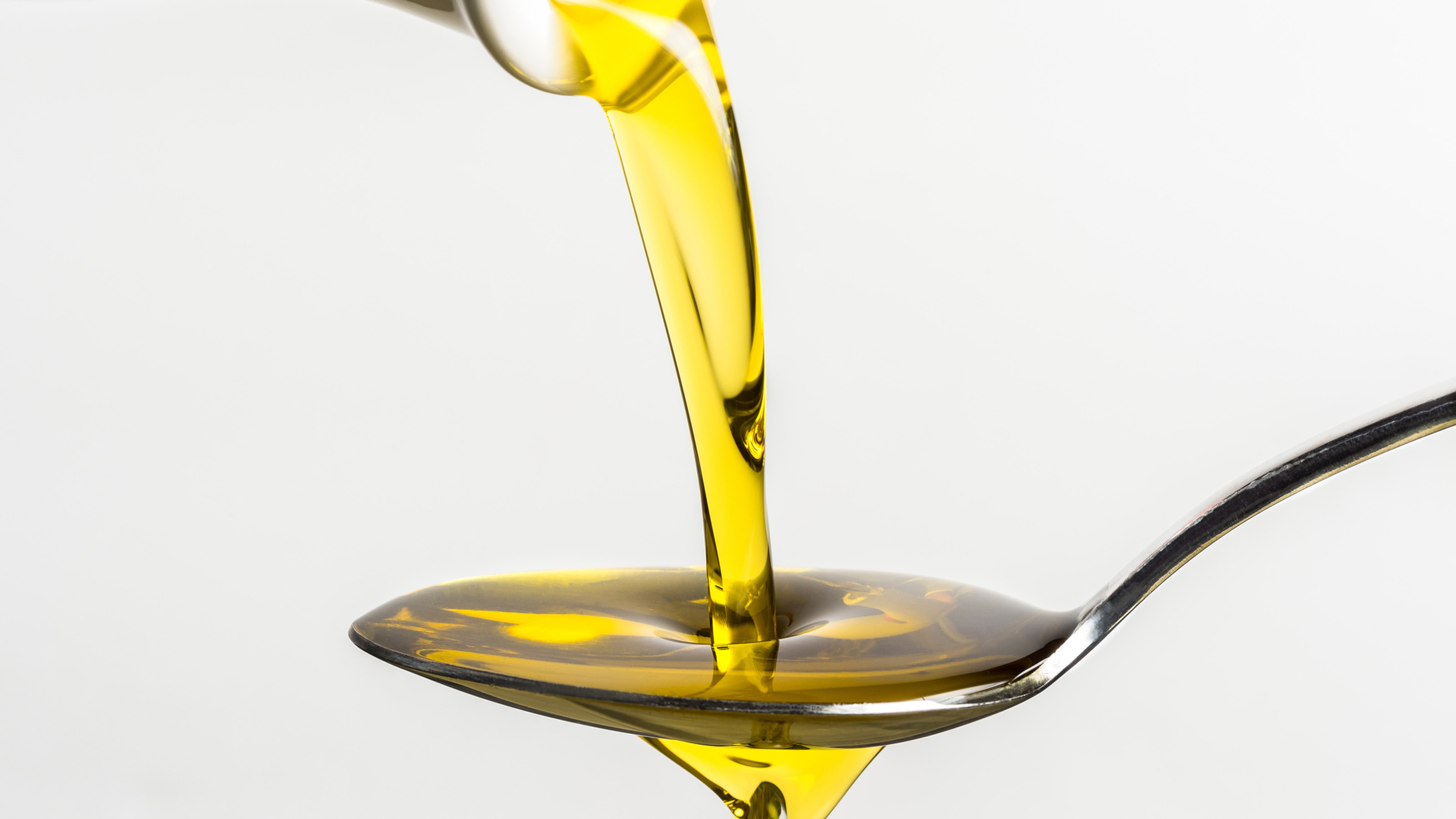
18. Cooking oils
Cooking oils — think: extra virgin olive, avocado and sesame — can be costly, especially if you’re buying organic. That prompts some warehouse club shoppers to purchase one of those behemoth containers (usually around 2 liters) filled with their cooking oil of choice.
Compare the per-unit price of the warehouse club’s oil and smaller quantities at traditional grocers — the bulk-size version is typically the better overall deal.
Before you buy, think about how often you’ll actually use that oil, experts say. Cooking oils have a much shorter shelf life than other kitchen pantry staples such as dry noodles or canned sauces.
An opened bottle of olive oil can last about three months when stored in a pantry and four months when stored in the refrigerator, according to FoodSafety.gov.
If you cook often or have a family, you’ll probably finish one of these large bottles before it starts to spoil. If you’re cooking just for yourself or a significant other, it’s much more cost-effective to buy smaller bottles of cooking oil when they go on sale at your neighborhood grocer.

19. Books
Skip the books section the next time you're checking out the floor displays or searching online at your favorite warehouse club. In addition to offering a limited selection of books, warehouse clubs usually won’t beat the prices on Amazon, according to the smart shopping experts we talked to.
If you happen to see a book that really piques your interest, LivingRichWithCoupons.com’s Livesey offers this pro tip: “While at the store, use the Amazon app to scan the book to see how much it sells for before buying it from the warehouse club.”
If you’re not a regular Amazon shopper and don’t have the app downloaded on your smartphone, check prices using the secondhand book site ThriftBooks.com, says Woroch.
"Although you may find a small discount on various books sold at warehouse stores compared to a local bookstore, you can often find better deals elsewhere," Woroch says. "For children’s books, head to a discount retailer like TJMaxx and HomeGoods to scope out their selection at up to 60% off," plus, via Thriftbooks, you can even apply a coupon from CouponFollow.com for more money off.

20.Disposable utensils, cups and plates
From summertime picnics to holiday gatherings, it's good to have disposable plates, cups and utensils on hand. Warehouse clubs aren't the best place to score those restaurant-size packages of disposables.
"I can tell you from experience that buying these items in bulk is not a great idea unless you entertain outdoors a lot," says Bodge. "We are a family of three, and while we picnic a fair bit in the summer, and have gatherings in our yard occasionally, it’s going to take years to use up those items that I bought at Costco. So, while they saved me money when I bought them, they are now taking up precious real estate in my already-crowded basement. I would have been better off buying them at the grocery store."

21. Prescription glasses if you're picky
My ophthalmologist's office, like so many others, has an eyeglass store attached to it. My ophthalmologist said I should get my eyewear at Costco. So I have, for many years.
Others say to get your prescription glasses at warehouse clubs with caution.
"I am a huge proponent of the budget-friendly eye exams available at many wholesale warehouses (membership is not required, in many cases)," said Bodge. "But I have found the selection of glasses to be wanting. The prices are decent, but there are glasses online at sites like Zenni and EyeBuyDirect.com that are more stylish and affordable. And these sites have virtual try-on.

22. Almost anything you buy on impulse
If you visit Costco, Sam's Club or BJ's on a random Saturday or Sunday on an empty stomach, you'll probably walk out feeling stuffed. That's because they are back to offering free food samples that you can enjoy as many times as you want.
Members can score sample-size versions of everything from mini quiches to potstickers. While this is a tasty perk, warehouse clubs are hoping you'll like these free goodies so much that you'll impulsively toss a bulk-size package or two into your shopping cart.
But if you do, warns Offers.com's McGrath, "this becomes a much bigger investment than your average grocery store impulse purchase." Not only will you need to find space in the freezer or cupboard to store your bulk purchase, but if your family ends up not liking that 48-count box of snack bars you bought on a whim, you may never finish them by yourself, she notes.
Just ask the huge bag of potstickers I bought on a whim two months ago after sampling them at Costco. It hasn't been opened yet.
Related Content
Profit and prosper with the best of Kiplinger's advice on investing, taxes, retirement, personal finance and much more. Delivered daily. Enter your email in the box and click Sign Me Up.

Bob was Senior Editor at Kiplinger.com for seven years and is now a contributor to the website. He has more than 40 years of experience in online, print and visual journalism. Bob has worked as an award-winning writer and editor in the Washington, D.C., market as well as at news organizations in New York, Michigan and California. Bob joined Kiplinger in 2016, bringing a wealth of expertise covering retail, entertainment, and money-saving trends and topics. He was one of the first journalists at a daily news organization to aggressively cover retail as a specialty and has been lauded in the retail industry for his expertise. Bob has also been an adjunct and associate professor of print, online and visual journalism at Syracuse University and Ithaca College. He has a master’s degree from Syracuse University’s S.I. Newhouse School of Public Communications and a bachelor’s degree in communications and theater from Hope College.
- Rachael GreenPersonal finance eCommerce writer
- Erin BendigPersonal Finance Writer
-
 Ask the Tax Editor: Federal Income Tax Deductions
Ask the Tax Editor: Federal Income Tax DeductionsAsk the Editor In this week's Ask the Editor Q&A, Joy Taylor answers questions on federal income tax deductions
-
 States With No-Fault Car Insurance Laws (and How No-Fault Car Insurance Works)
States With No-Fault Car Insurance Laws (and How No-Fault Car Insurance Works)A breakdown of the confusing rules around no-fault car insurance in every state where it exists.
-
 Why Picking a Retirement Age Feels Impossible (and How to Finally Decide)
Why Picking a Retirement Age Feels Impossible (and How to Finally Decide)Struggling with picking a date? Experts explain how to get out of your head and retire on your own terms.
-
 How Much It Costs to Host a Super Bowl Party in 2026
How Much It Costs to Host a Super Bowl Party in 2026Hosting a Super Bowl party in 2026 could cost you. Here's a breakdown of food, drink and entertainment costs — plus ways to save.
-
 5 Best Splurge Cruises for Retirees in 2026
5 Best Splurge Cruises for Retirees in 2026Embrace smaller, luxury ships for exceptional service, dining and amenities. You'll be glad you left the teeming hordes behind.
-
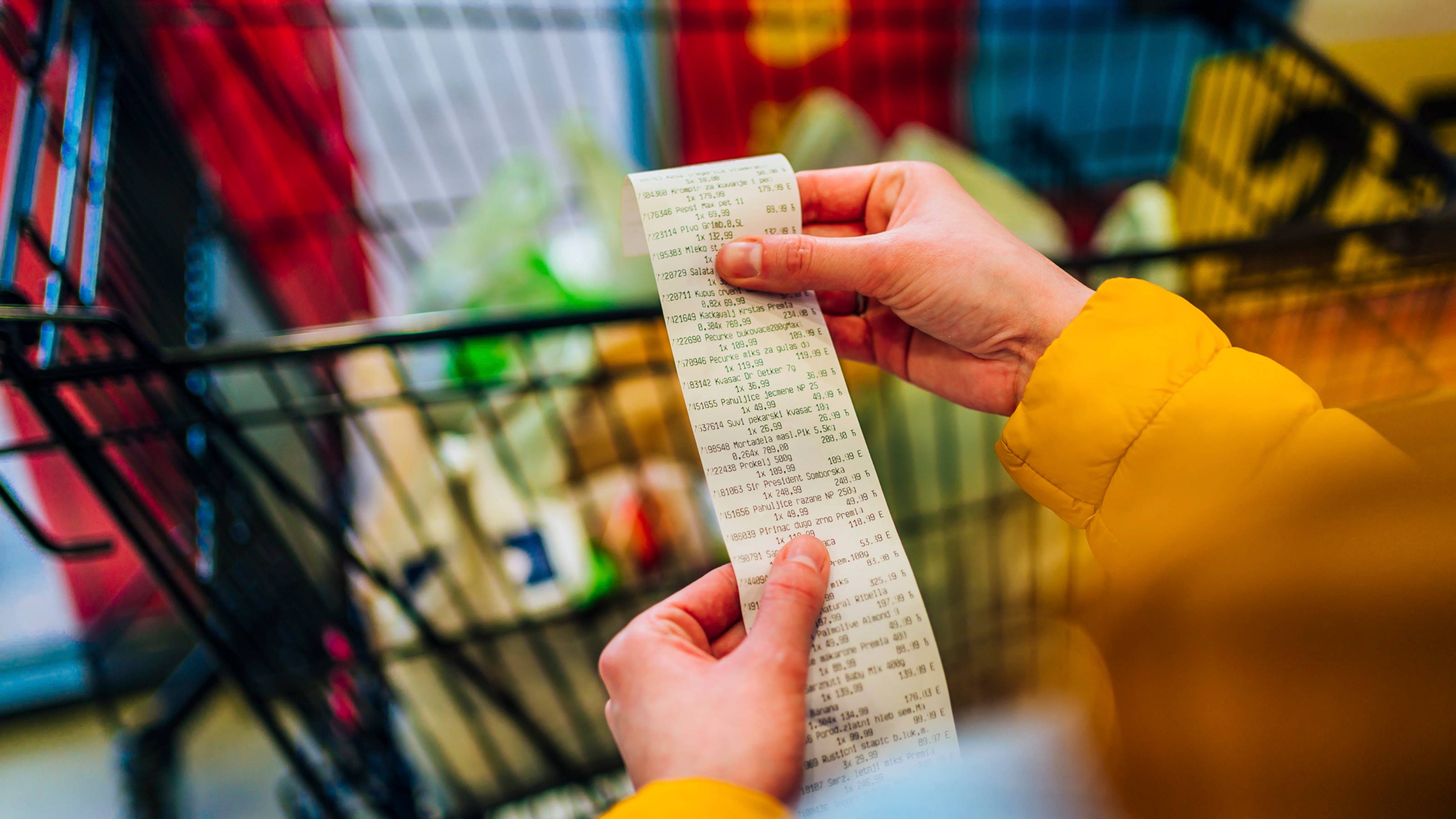 How Prices Have Changed in Trump's First Year
How Prices Have Changed in Trump's First YearTrump campaigned on bringing prices down for Americans. Here's where prices stand one year into his second term.
-
 Smart Ways to Share a Credit Card
Smart Ways to Share a Credit CardAdding an authorized user has its benefits, but make sure you set the ground rules.
-
 8 Things You Need to Stop Wasting Money on in 2026
8 Things You Need to Stop Wasting Money on in 2026Want to get your finances in shape this year? Start by cutting out these sneaky sources of waste in your budget.
-
 Park Pass Shock: $100 Fee Hits International Visitors to US National Parks
Park Pass Shock: $100 Fee Hits International Visitors to US National ParksDiscover how the new $100 fee will impact your experience visiting 11 of America's most popular parks.
-
 How AI Is Changing the Way Americans Spend on Live Events
How AI Is Changing the Way Americans Spend on Live EventsAI bots are reshaping ticket prices, resale markets and how fans shop. Here's what it means for your wallet and how to get the best deals on concerts, sports and shows.
-
 What Bilt Cardholders Need to Know as Wells Fargo Exits the Program
What Bilt Cardholders Need to Know as Wells Fargo Exits the ProgramA major shake-up in the Bilt Rewards program could affect your credit card, rent rewards and points strategy in 2026.

